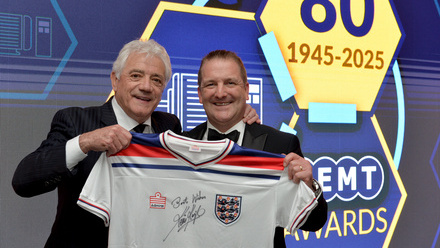Bridging the gap: How early engagement is building a brighter engineering future
By fostering a love for engineering from a young age, Primary Engineer helps to lay the practical foundation for a future generation of passionate and skilled engineers, primed to make a positive impact on the world.
STARTING YOUNG
Research indicates that interest and perceptions of STEM fields are formed during primary school years and solidified by the early teens. This highlights the importance of early engagement in igniting a passion for engineering. Furthermore, the UK faces a challenge of low awareness and understanding of engineering amongst its younger generation. Figures published in 2020 by EngineeringUK found that 47% of 11 to 19 year olds knew little or nothing about what engineers do, with some learners found to possess limited definitions that framed engineering as difficult, complicated and dirty work.
Traditionally, engineers have been inspired by someone they know. But what about pupils who lack such role models? The lack of role models for children or a clear picture of what engineers do, coupled with a lack of diversity in the field, is a significant challenge. This limited understanding translates into a smaller talent pool, hindering the industry's ability to attract future engineers.
EMBEDDING ENGINEERING INTO EDUCATION
Primary Engineer brings engineering to life in classrooms across the UK with its fully-funded educational programmes, competitions, and qualifications. These activities are designed to engage both teachers and pupils in significant ways by creating meaningful connections between engineering principles and real-world applications. Its annual competition, 'If you were an engineer, what would you do?', is a prime example. The competition encourages pupils to interview real engineers (in-person or virtually), fostering connections and sparking curiosity. Pupils then use these interviews to identify innovative solutions to real-world problems, building communication and writing skills through an annotated illustration and crafting a persuasive letter that explains their ideas. Pupils build lasting memories at regional public exhibitions and awards ceremonies where their incredible, innovative ideas are celebrated in the summer term.
SHEDDING LIGHT ON LOCAL OPPORTUNITIES
Many engineering companies operate in large, unassuming buildings, and their inner workings are a mystery to the outside world. Primary Engineer facilitates connections between these companies and schools, facilitating in-school engineering visits or even site visits, fostering local brand awareness, and demystifying the engineering profession. This exposes pupils to a world they might not have known existed, empowers them to ask questions that truly resonate with them, and gives them a role model – after all, pupils can't be what they can't see.
This approach shatters preconceived notions about what engineering is and what engineers look like. This benefits companies by creating a talent pipeline and exposes young minds to the exciting world of engineering right on their doorstep, potentially inspiring future careers. The potential for the competition to support career aspirations is also recognised by engineers who meet pupils during their engineer interviews.
One engineer, Christina, noted: "The students I visited didn't have many engineering role models and weren't aware of the strong engineering industries in their own city. So it was really nice to help make them aware of the possibilities open to them."
INSPIRING PUPILS THROUGH EFFECTIVE ROLE MODELS
Given the wider challenges of diversity and participation in UK engineering, Primary Engineer's approach allows its educational activities to reach particular areas and communities to close inequality gaps and widen ethnicity representation, fostering a more inclusive future for engineering.
In 2023, half of the organisation's 48,052 competition entries were received from girls, highlighting the equality present within the reach and participation of the competition. Moreover, girls often receive more awards from this competition than boys, demonstrating the capacity of this project to support young girls to excel in engineering.
A learner who has participated in the project is likely to develop a stronger understanding of engineering, which may prompt them to consider engineering educational pathways as they age.
One student who participated in the Leaders Award competition while in secondary school recalled how inspirational it was: "It really inspires you because through [the Leaders Award] we got to meet engineers, talk to them, and see people who look similar to you in aspirational roles. It just inspires you and lets you know it is possible to go down that route."
The Leaders Award competition has been designed to support substantial, cumulative change over time to build greater support for UK engineering. The competition comprises multiple components – interviews, design activities, persuasive writing, and events – with multiple points of contact between learners and engineers. It is hoped that the positive impact of these experiences accumulates into ripples of change that have a profound impact over time and across the UK.
A BRIGHTER FUTURE AWAITS
The engineering skills gap is a complex issue, but innovative approaches like those of Primary Engineer offer a promising path forward. By igniting a passion for engineering early on, we can foster a future generation of skilled and enthusiastic engineers, ready to tackle the challenges of tomorrow.




